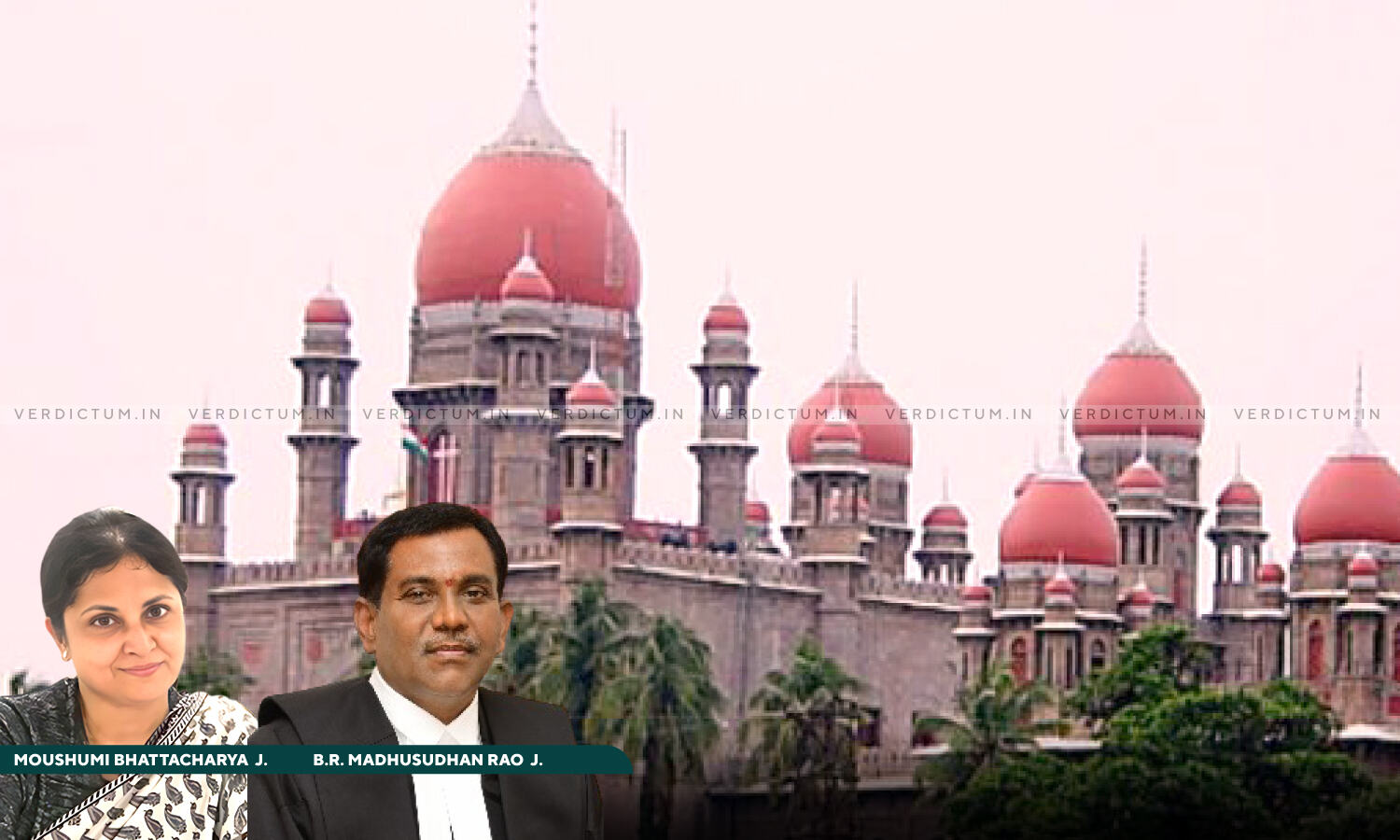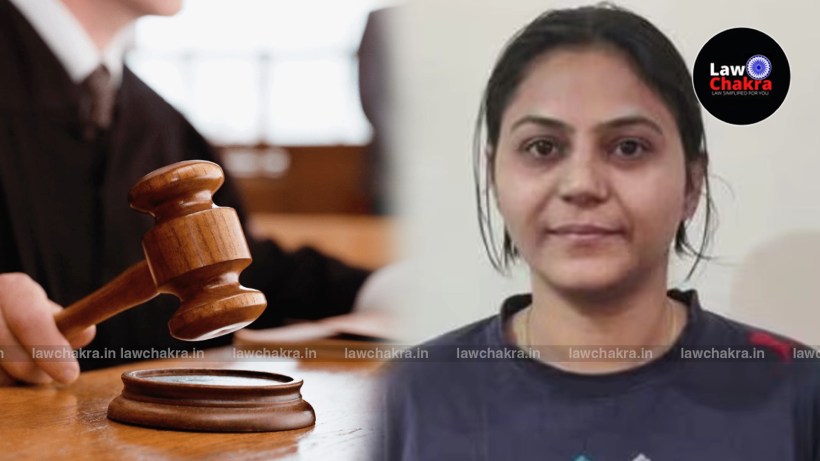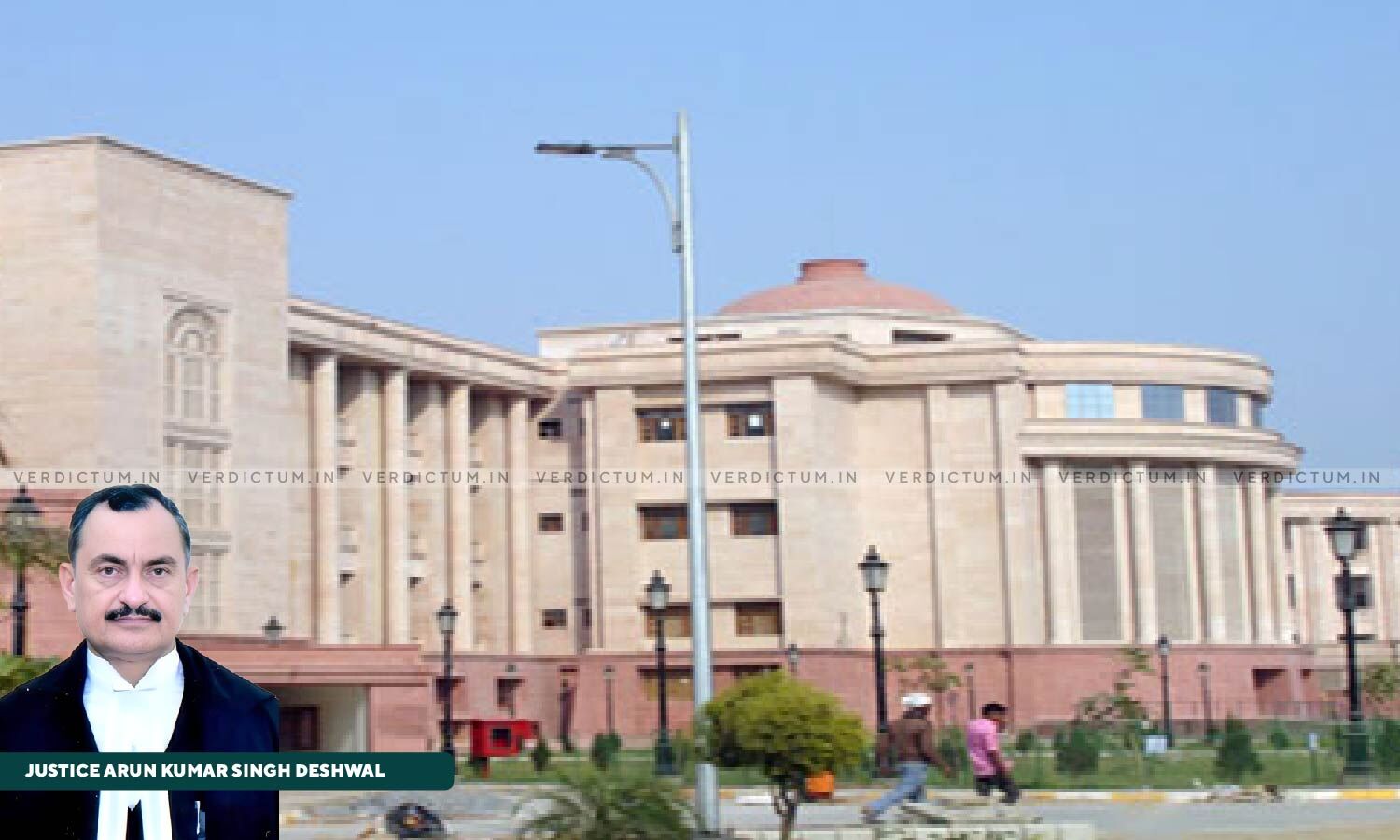Telangana High Court Upholds Preventive Detention Order

The Telangana High Court has upheld the Preventive Detention Order, saying that possession and sale of Illicitly Distilled Liquor (IDL) would have irreversible repercussions on the community.
The Court was hearing a Writ Petition preferred by the wife of the detenu, challenging an Order of detention passed by the District Collector and District Magistrate and an Order passed by the State represented by its Chief Secretary, General Administration (Law & Order) Department, confirming the said detention.
A Division Bench comprising Justice Moushumi Bhattacharya and Justice B.R. Madhusudhan Rao observed, “We also do not have any doubt that possession and sale of IDL, which is unfit for human consumption and injurious to health, would have larger and irreversible repercussions on the community. The depth and gravity of the offence would extend beyond the smallest circle of the community and penetrate through successive layers, thereby affecting a much larger number of persons. The indirect effect of the sale of spurious liquor, which is hazardous to health, would result in permanent and irreversible health hazards, leading to a decline in the overall quality of life and well-being of the society.”
The Bench added that this would in turn impair the income generating capability, employment opportunities, nutritional standards and literacy levels of the society as a whole.
Advocate Laxmaiah Kanchani appeared for the Petitioner while Special Government Pleader (SGP) Swaroop Oorilla appeared for the Respondents.
Facts of the Case
The Petitioner i.e., wife of detenu sought issuance of a Writ of Habeas Corpus, directing the Respondents to produce the detenu who has been lodged at the Central Prison, before the High Court to set aside the detention order as well as the confirmation order, and release of the detenu. The detenu was charged with engaging in the business of possession and sale of IDL in contravention of the provisions of The Telangana Prohibition Act, 1995 as well as The Telangana Prevention of Dangerous Activities of Boot-leggers, Dacoits, Drug-Offenders, Goondas, Immoral Traffic Offenders Land-Grabbers, Spurious Seed Offenders, Insecticide Offenders, Fertiliser Offenders, Food Adulteration Offenders, Fake Document Offenders, Scheduled Commodities Offenders, Forest Offenders, Gaming Offenders, Sexual Offenders, Explosive Substances Offenders, Arms Offenders, Cyber Crime Offenders and ‘White Collar or Financial Offenders Act, 1986.
A case vide Crime Occurrence Report (COR) was registered against the detenu under Section 7A read with Section 8(e) of the 1995 Act, consequent upon 20 litres of liquor being allegedly seized from the detenu. The seized liquor was analysed by the Chemical Examiner of the Regional Prohibition and Excise Laboratory and it was opined that the seized substance was ‘IDL’ which is unfit for human consumption and injurious to health. Thereafter, another case was registered against him and 10 litres of liquor was allegedly seized from the detenu. Once again 5 litres of liquor was allegedly recovered from him and lastly, 10 litres of liquor was recovered. Consequently, the detention order was passed, which was under challenge before the High Court.
Reasoning
The High Court in the above regard, said, “We also find that the Detaining Authority followed the sequential procedure provided under the 1986 Act, i.e., categorising the detenu as a ‘Boot-Legger’under section 2(b) of the 1986 Act and thereafter passing the impugned order along with the Grounds of Detention upon satisfaction of the requirement to pass such an order under section 3(1) of the 1986 Act. The Government is conferred with the power under section 3 to pass orders detaining certain persons named in the 1986 Act. The impugned order does not contain omnibus allegations but deals with each of the four cases of recovery of IDL from the detenu and the chemical analysis reports of the same.”
The Court took note of the fact that the Petitioner has not been able to counter the findings in the impugned Order and the Grounds of Detention with regard to the multiple offences committed by the detenu qualifying him as a habitual offender or the fact that the IDL failed to meet the required safety standards of human consumption.
“The opinion on the necessity of the detention is fortified by the factual particulars and constitutes the subjective satisfaction of the Detaining Authority. The subjective satisfaction so expressed cannot ordinarily be discarded by the Court unless it is demonstrably clear that the Detaining Authority has failed to consider relevant circumstances or has taken unnecessary and irrelevant circumstances into account for ordering a detention”, it elucidated.
Furthermore, the Court observed that the detenu has been acting in a manner prejudicial to the maintenance of public order, and is likely to continue to act in a similar manner in the near future unless prevented from doing so by passing an order of detention.
“In the instant case, we have not found any lack of application of mind in the impugned order, nor any perverse element that would vitiate the said order. … The impugned order therefore satisfies the manifold requirements of section 2(a) of the 1986 Act read with the Explanation thereto. The only caveat is that the preventive detention should not be continued for an indefinite period under the pretext of an ongoing investigation”, it also remarked.
The Court emphasised that the authorities concerned should ensure that the justice system is activated and sustained to conclude the investigation as expeditiously as possible and preferably by December 31, 2025.
“Thus, we do not find any reason to interfere with the impugned Preventive Detention Order dated 25.11.2024 or the subsequent Confirmation Order dated 23.12.2024”, it concluded.
Accordingly, the High Court dismissed the Writ Petition and upheld the Preventive Detention Order.
Cause Title- Dharavath Laxmi v. The State of Telangana and Others (Case Number: W.P.NO.2133 of 2025)





